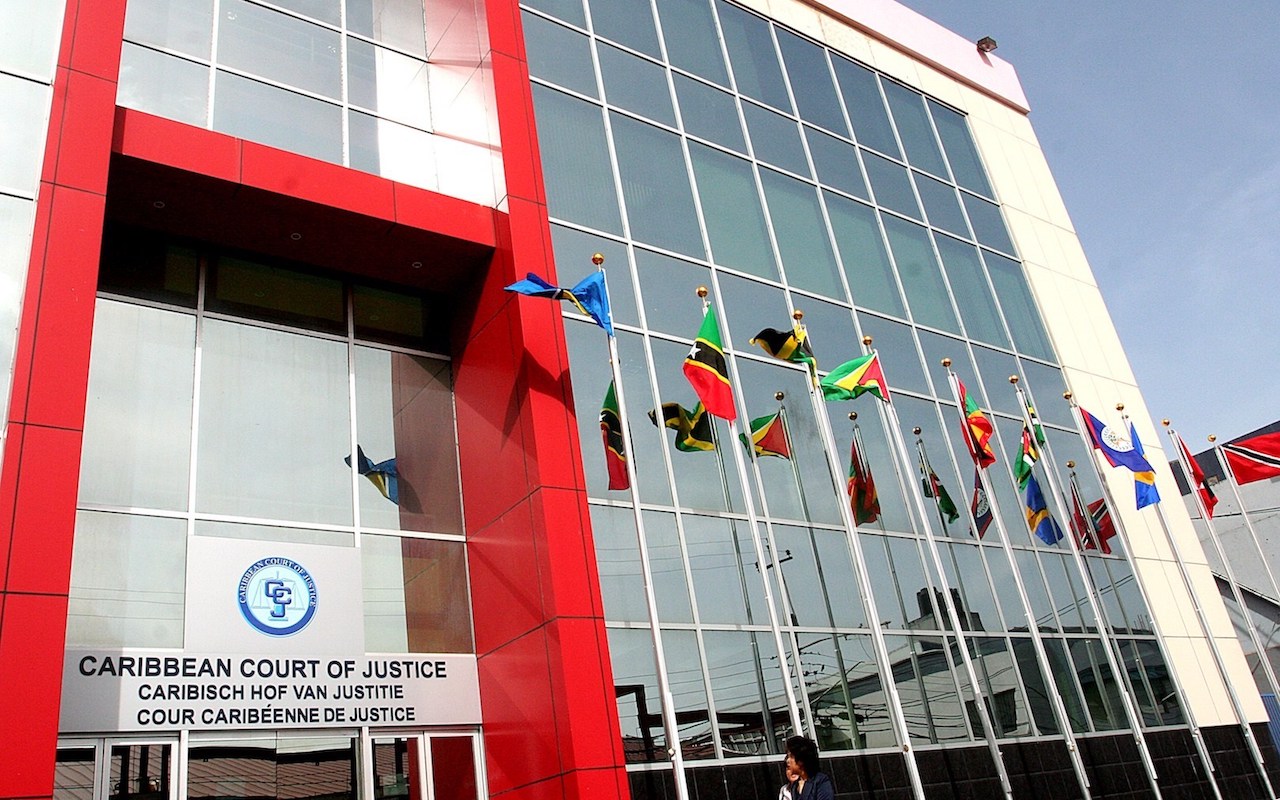This country’s final court of appeal has ruled that the Sandy Lane Hotel wrongfully dismissed three of its employees ten years ago.
In the judgment handed down by the Caribbean Court of Justice (CCJ) on Thursday, the four judges also ordered the luxury hotel in St James to pay the former workers – Juliana Cato, Wayne Johnson and Charmaine Poyer – the damages they had claimed back in 2012 and to foot the bill for their legal costs as well.
While lead attorney for the ex-employees Edmund King, Q.C. was elated at the judgment, legal counsel for Sandy Lane Satcha Kissoon said the CCJ’s decision was hard to swallow.
“I am happy with the ruling. It was long in coming,” King told Barbados TODAY in a brief response.
When asked about the damages which the ex-hotel staffers were claiming, he said it would not be appropriate to comment on it now, because the final figure had to be agreed between the two sides, failing which the matter must return to the Magistrates’ Court for a determination.
But on the question of the wrongful dismissal ruling, Kissoon remained adamant that Sandy Lane was justified in terminating the workers and found the judgment troubling.
“The issue that we have is that we read and understand the CCJ’s ruling. The issue we have is that there was a contractual mechanism by which Sandy Lane could have terminated and they engaged that. The issues that they framed in the termination letters were as a courtesy to enable the employees to understand why they were determining the contractual right on the part of Sandy Lane,” Kissoon told Barbados TODAY.
“What the CCJ has said is that by stating the reason, it accords with there having to have been a disciplinary process. We find it troubling because if Sandy Lane had given no reason and simply terminated the employees in accordance with the contract then that would have been fully appropriate. So it’s a difficult decision to digest,” the hotel’s lawyer declared.
When contacted, one of the former employees Juliana Cato, seemed unaware of the ruling and told Barbados TODAY she would now have to process it.
In tracing the history of the wrongful dismissal case, the CCJ noted that the company had employed the workers for between six and 11 years when they were each dismissed in January 2012 with one week’s payment in lieu of notice.
The regional tribunal said the reason for each dismissal was alleged to be poor performance in relation to their treatment respectively, of a particular hotel guest. The employees brought wrongful dismissal actions claiming damages under the Severance Payments Act with the hotel claiming lawful termination as its defence.
The magistrate and the Court of Appeal of Barbados both held that the employees had been wrongfully dismissed and were entitled to damages under the Act.
The magistrate’s decision was based on the finding that the collective agreement executed by the Barbados Workers’ Union (BWU) and the Barbados Employers Confederation for the Barbados Hotel and Tourism Association was incorporated into the employees’ contracts and the dismissals were in breach of that collective agreement.
The local Court of Appeal, on the other hand, concluded that the company was required to follow the disciplinary process set out in the employees’ terms and conditions of service.
Those terms were contained in a separate document, the Caribbean court justices stated, but incorporated into the respective contracts of each employee.
The appeal court decided that the company’s failure to follow those processes in dismissing the employees rendered the dismissals unlawful. The company appealed to the CCJ.
The CCJ found that the provision in the employees’ contracts for dismissal with one week’s payment in lieu of notice conflicted with other contractual provisions requiring a specified disciplinary process to be followed in cases of alleged poor performance.
Dismissal with a week’s payment in lieu of notice also conflicted with the further contractual provisions for employees to be given “every opportunity through counselling, training and re-training” before being terminated for poor performance. The CCJ held that these conflicts must be resolved against the company as it was the company that had drawn up the employees’ contracts and the company was in the dominant position.
The CCJ noted that the three employees were unable to bring an action for unfair dismissal, as is now provided for in Barbados by the Employment Rights Act of 2012 that was passed months after they were dismissed.
The CCJ held that since the real reason for the employees’ dismissal was alleged poor performance, the company could not simply dismiss them without following those provisions in their terms and conditions that specifically addressed how poor performance should be treated.
“By acting in the manner that it did, the company not only breached those provisions of the employees’ terms and conditions of service that stipulate how alleged poor performance should be treated but also the company was in breach of the implied term of mutual trust and confidence,” the panel of judges comprising the president, Justice Adrian Saunders and Justices Maureen Rajnauth-Lee, Jacob Wit, Winston Anderson and Denys Barrow, ruled.
This term, the CCJ noted, is implied by the common law in every contract of employment to ensure that employees are treated fairly and that employers do not conduct themselves in a manner that destroys or seriously damages the relationship of confidence and trust between employer and employee.
The Court therefore held that the employees should be awarded damages of at least the amount they would have been entitled to receive as severance pay under the Act.
The CCJ dismissed the company’s appeal with costs to the employees calculated in accordance with Rule 17.15(3)(b) of the CCJ Appellate Jurisdiction Rules, 2021.
The judgment was delivered jointly by Justices Saunders, and Rajnauth-Lee. Kissoon appeared in association with Joia Reece while King was assisted by attorney Nailah Robinson.
emmanueljoseph@barbadostoday.bb




